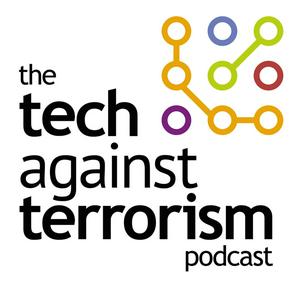Beschikbare afleveringen
5 van 83
- Improvised Explosives: Drones, 3D Printing, and Emerging TechImprovised Explosive Devices (IEDs) have long been a weapon of choice for terrorist organisations. They’re cheap, adaptable, and devastatingly effective. But as technology evolves, so too do the tactics and tools used to build and deploy these weapons.In this episode, host Lucas Webber is joined by Dr Austin Doctor, political scientist, Associate Professor at the University of Nebraska at Omaha, and Director of Strategic Initiatives at the National Counterterrorism Innovation, Technology, and Education Center (NCITE). Together, they explore how emerging technologies - from drones to 3D printing - are reshaping the global threat landscape, and how governments can respond to this rapidly evolving challenge.🎧 Listen to learn:➡︎ How terrorist groups are adapting IED tactics using emerging technologies➡︎ The growing role of drones and dual-use tools in attack planning➡︎ The rise of DIY manuals and online knowledge-sharing around explosives➡︎ How younger people are increasingly being drawn into IED making and assembly➡︎ Strategies to mitigate these evolving threats📱Connect with Austin Doctor.⚡Follow Tech Against Terrorism on LinkedIn. 🌐Check out the Tech Against Terrorism website.💬 Connect with our host, Lucas Webber. 📄 Read a full transcript of this episode here. 🎙️ An OG Podcasts Ltd production.--------37:02
- Terrorism in Europe: How political polarisation is fueling radicalisationAs political uncertainty continues to rise across Europe, increasing polarisation is creating a breeding ground for radicalisation. More than ever, extremist groups are exploiting online platforms and social networks - using them as virtual planning hubs, spaces to share extremist propaganda and recruit young people. In this episode, host Lucas Webber is joined by Dr Nicolas Stockhammer, a political scientist and Director of the Research Cluster "Counter-Terrorism, CVE and Intelligence" at Danube-University Krems in Austria. They explore the online trends emerging across Europe, and what these developments mean for counter-terrorism efforts.🎧 Listen to learn:➡︎ How terrorist groups are exploiting social media and online communities➡︎ The role of online propaganda in radicalising young people➡︎ How virtual spaces are used for training and operational planning➡︎ The impact of political instability on extremist influence online📱Connect with Dr Nicolas Stockhammer.⚡Follow Tech Against Terrorism on Bluesky and LinkedIn. 🌐Check out the Tech Against Terrorism website.💬 Connect with our host, Lucas Webber. 📄 Read a full transcript of this episode here. 🎙️ An OG Podcasts Ltd production.--------36:29
- Radicalisation in Southeast Asia: What we can learn from the regionFrom online propaganda targeting youth, to the gendered dynamics of extremist groups, Southeast Asia faces a unique set of terrorism challenges that are often overlooked by the international community.In this episode, host Lucas Webber is joined by Julie Chernov Hwang - Associate Professor at Goucher College, Senior Research Fellow at The Soufan Center, and an expert on terrorism in Southeast Asia. Together, they explore the key drivers of radicalisation in the region, how individuals disengage from violent groups, and what local civil society initiatives are doing to counter extremism.🎧 Listen to learn:➡︎ How social bonds play a central role in radicalisation➡︎ The growing trend of youth and women in extremist networks in South East Asia➡︎ What drives militants to leave terrorist groups➡︎ The role of locally led deradicalisation efforts➡︎ What the world can learn from Southeast Asia's experience📱Connect with Julie Chernov Hwang.⚡Follow Tech Against Terrorism on Bluesky and LinkedIn. 🌐Check out the Tech Against Terrorism website.💬 Connect with our host, Lucas Webber. 📄 Read a full transcript of this episode here. 🎙️ An OG Podcasts Ltd production.--------43:23
- Al Qaeda: Current Capabilities and Threat TrajectoriesFounded by Osama bin Laden in the late 1980s, Al-Qaeda is best known for orchestrating the September 11, 2001 terrorist attacks in the United States, which killed nearly 3,000 people. But what kind of threat does the violent Islamist organisation pose in 2025?In this episode, host Lucas Webber is joined by Edmund Fitton-Brown, a former British diplomat and former Coordinator of the United Nations’ Monitoring Team, and an expert on Al-Qaeda. Edmund shares unique insights into Al-Qaeda’s current capabilities, the group’s strategic recalibration following the October 7th, 2023 Hamas attack, and why he believes a directed Al-Qaeda attack may not be far off.🎧 Listen to learn: ➡︎ How serious a threat Al-Qaeda currently poses on the global stage ➡︎ Why the group is ramping up recruitment and training ➡︎ What indicators suggest a directed attack on the West could be imminent📱Connect with Edmund Fitton-Brown. ⚡Follow Tech Against Terrorism on Bluesky and LinkedIn. 🌐Check out the Tech Against Terrorism website.💬 Connect with our host, Lucas Webber. 📄 Read a full transcript of this episode here. 🎙️ An OG Podcasts Ltd production.--------36:39
- Balochistan Liberation Army: Pakistan’s Rising Militant ChallengeThe Balochistan Liberation Army (BLA) is fighting for the independence of Balochistan, a resource-rich but politically marginalised region in Pakistan. In pursuit of that goal, the group have evolved both their offline and online strategies, from suicide bombings to increasingly sophisticated online propaganda. Now, experts are warning the BLA could represent the most significant internal threat Pakistan faces.In this episode, host Lucas Webber is joined by Riccardo Valle, a researcher specialising in jihadism, armed groups, and regional politics in Afghanistan and Pakistan. Together, they unpack the rise of the BLA, its growing presence on social media and messaging platforms, and the unique role women play in the group’s operations.🎧 Listen to learn: ➡︎ The origins of the BLA ➡︎ About their sophisticated online media campaign ➡︎ About the group’s female suicide bombers ➡︎ How Pakistan is responding to the BLA’s threat ➡︎ How the group has become Pakistan's biggest internal threat 📱Connect with Riccardo Valle.⚡Follow Tech Against Terrorism on Bluesky and LinkedIn. 🌐Check out the Tech Against Terrorism website.💬 Connect with our host, Lucas Webber. 📄 Read a full transcript of this episode here. 🎙️ An OG Podcasts Ltd production.--------36:09
Meer Onderwijs podcasts
Trending Onderwijs -podcasts
Over Tech Against Terrorism
Want to learn more about how terrorists and violent extremists are using the internet to communicate and share propaganda? Perhaps you’re interested in why terrorists share their manifestos online and livestream their attacks? The Tech Against Terrorism podcast is a deep dive into the evolving use of the internet by terrorists and violent extremists, how this relates to real world harms, and what can be done to support the tech sector to disrupt this threat. Join us as we speak to the world’s leading experts in this field and uncover everything from the online propaganda behind an IS prison break in Syria, to the online network of neo-Nazis behind a foiled terrorist plot in Texas.
Podcast websiteLuister naar Tech Against Terrorism, The Mel Robbins Podcast en vele andere podcasts van over de hele wereld met de radio.net-app

Ontvang de gratis radio.net app
- Zenders en podcasts om te bookmarken
- Streamen via Wi-Fi of Bluetooth
- Ondersteunt Carplay & Android Auto
- Veel andere app-functies
Ontvang de gratis radio.net app
- Zenders en podcasts om te bookmarken
- Streamen via Wi-Fi of Bluetooth
- Ondersteunt Carplay & Android Auto
- Veel andere app-functies


Tech Against Terrorism
Scan de code,
download de app,
luisteren.
download de app,
luisteren.





























